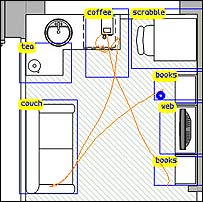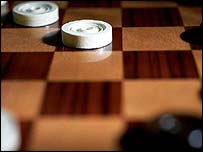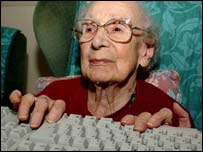|
|
Smart Homes Offer a Helping Hand
By Mark Ward, BBC News Online
May 19, 2004

Homes could monitor where you go in your home
Smart homes of the future will not only feature designer fabrics and furniture, they will also be filled with clever technology that takes a greater interest in your daily life.
Researchers at the technology consultancy Accenture are working on ways to help homes watch what their occupants are doing.
The work is aimed at helping older people by spotting when they get into difficulties, to diagnose health problems before they become serious and to combat loneliness by making it easier to keep in touch with their family.
Eventually the projects could produce products that help almost anyone stay healthy or stay in contact with friends.
Dumb domicile
Marion Mesnage, a senior specialist at Accenture labs, said many of the technologies she and her colleagues had been working on were designed to help societies cope with their ageing populations.
By 2050, according to UN estimates, about 20% of people will be aged 60 or over. In developed nations, the figure could climb as high as 33%. Ms Mesnage said it was not just pensioners that needed help to cope.
Statistics showed that carers were two to three times more likely to need drugs to cure depression, anxiety and insomnia than any other group, she said.
To help people cope, Accenture researchers are concentrating on five main projects:
Persuasive mirrors
Connective tables
Shared scrap books
Interactive pictures
Activity monitoring
The persuasive mirror manipulates images of a person in real time depending on what they have been doing all day.
Ms Mesnage said it could be used to encourage people to live healthier lives by showing what would happen to their appearance if they took no exercise and did not watch what they ate.
The connective table would use video-conferencing and projectors to let people play games such as draughts or chess even though they were in different locations.
Shared scrap books would let individual family members contribute images, messages and video to a single electronic journal that anyone could look at and flick through.
Snap and swap

You could play draughts via video
Interactive pictures would be a framed screen that acted as a direct channel to the person that it depicted.
Luca Rossi, lead researcher on this project, said it was designed for older people who do not, or cannot, learn to use a PC to communicate with more tech-savvy offspring and grandchildren.
"It is very, very hard for an 80-year-old person to go back to sit at a school desk and learn about computers," said Mr Rossi.
"But just standing in front of the picture could open a channel to me without doing any funny stuff on the keyboard or logging in," he said.
E-mail or instant messages sent to interactive picture would appear as a virtual post-it note that could be read off the screen. Recorded voice and video messages could be played back via the screen. When fitted with a small camera it could also act as a videophone for live chats.
Mr Rossi said the interactive picture was not intended to replace face-to-face contact but simply to complement it.
Watching brief

Not all pensioners are happy to learn to use a PC
Activity monitoring involves placing a series of cameras around a home that watch what a person does, where they go and how they get there.
"They always say that somehow the home will know what you are doing and this is the somehow," said Agata Opalach, a senior specialist at the Accenture labs working on the monitoring system.
Software would analyse the video shot by the cameras to monitor such things as facial expressions, posture, gait, focus of attention, the objects someone interacts with and a person's trajectory.
The system can also watch someone's centre of gravity to work out if they have fallen and could then alert doctors, carers and family to mobilise help.
Monitoring could also give clues to a person's emotional and physical state, said Ms Opalach.
She said that the effects of diseases such as Alzheimers are often revealed by the way someone behaves long before other signs become apparent.
|
|



